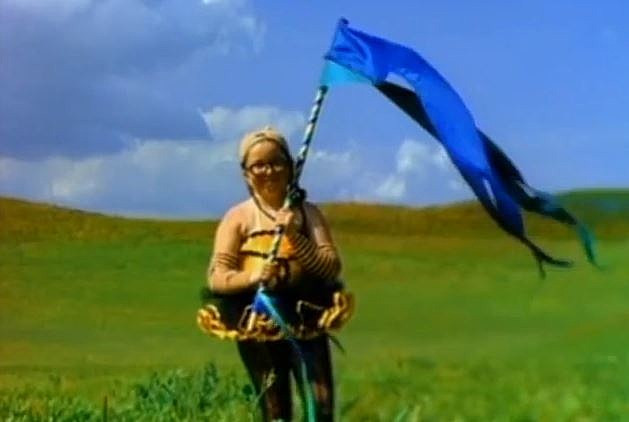 Blind Melon band photo
Blind Melon band photo
Like a truly terrible single, the nature of Blind Melon’s “No Rain” reveals itself over repeated airplay – and perhaps a degree of forced patience. It’s not that one wants to dislike songs, but sometimes the sonic texture just rubs the wrong way. Avoiding the obvious critical targets is the goal here. While respecting popular choices and even songs deemed critically important, it’s still fair game to examine those jukebox staples that were inescapable during certain eras, like drinking weak cranberry vodkas in undersized plastic cups at college bars.
Blind Melon – “No Rain” achieved significant chart success, reaching #1 on the Modern Rock Chart in September 1993 and peaking at #20 on the Billboard Hot 100 in October of the same year.
Despite efforts to articulate the perceived flaws in songs considered less than stellar, occasionally one encounters a track like “No Rain,” where a rational explanation for its appeal seems elusive. Every note, to some ears, might feel grating, every lyric potentially irritating. Interestingly, the context of listening can shift perception. Consider listening to “No Rain” in isolation, perhaps after a significant news event prompting a desire to disconnect. Suddenly, the song’s almost hypnotic focus on trivialities, like “stoner’s concentration on the snail slime on the wall,” becomes understandable. Focusing on the insignificant can be a form of escape.
This very quality might explain “No Rain”‘s massive popularity on MTV during late 1993 and early 1994. Its seemingly carefree embrace of simplicity wouldn’t have surprised anyone familiar with Edie Brickell and New Bohemians’ earlier hit, “What I Am.” However, with “No Rain,” the line between the persona in the song and the band itself felt even less defined. The music video undeniably propelled the song to another level of fame. The iconic imagery of the “bee girl,” alongside the band’s appearance, styled in a way that could be described as a caricature of 1960s hippies, performing in a field, became instantly recognizable.
Musically, “No Rain” is built upon strummed acoustic guitar chords reminiscent of America’s classic “A Horse with No Name,” appealing to a similar sensibility. Lyrically, singer Shannon Hoon’s perspective hints at a kind of pantheism, perhaps not entirely out of step with artists like D. Boon of the Minutemen, yet leaning more conventionally into established tropes. Lines like “all I can do is just pour some tea for two/And speak my point of view but it’s not sane” could easily be interpreted as cliché, post-hippie sentiments. On one level, they arguably remain so. “All I can do?” – a more engaged response would be to protest, to take action. The early 1990s, like the present day, were a period of significant social and political stakes. The crucial musical question becomes whether the song’s composition is strong enough to support this introspection or, failing that, to effectively articulate a viewpoint worth defending.
As the song’s pleasant melodies play on, it becomes difficult to discern a clear stance from Blind Melon. Their “we’re-just-flower-kids-man” attitude, while perhaps genuine, contributed to the band being seen as somewhat lightweight or irritating at the time for some listeners. While it’s unfair to hold Blind Melon accountable for unforeseen future political developments – the 1994 Republican surge, the political shifts of the Clinton era, or more recent political events – criticism can be directed at the sense of detachment the song seemed to embody. This detachment felt out of sync with the realities faced by many within the American system, all while being delivered in a musically unremarkable way.

